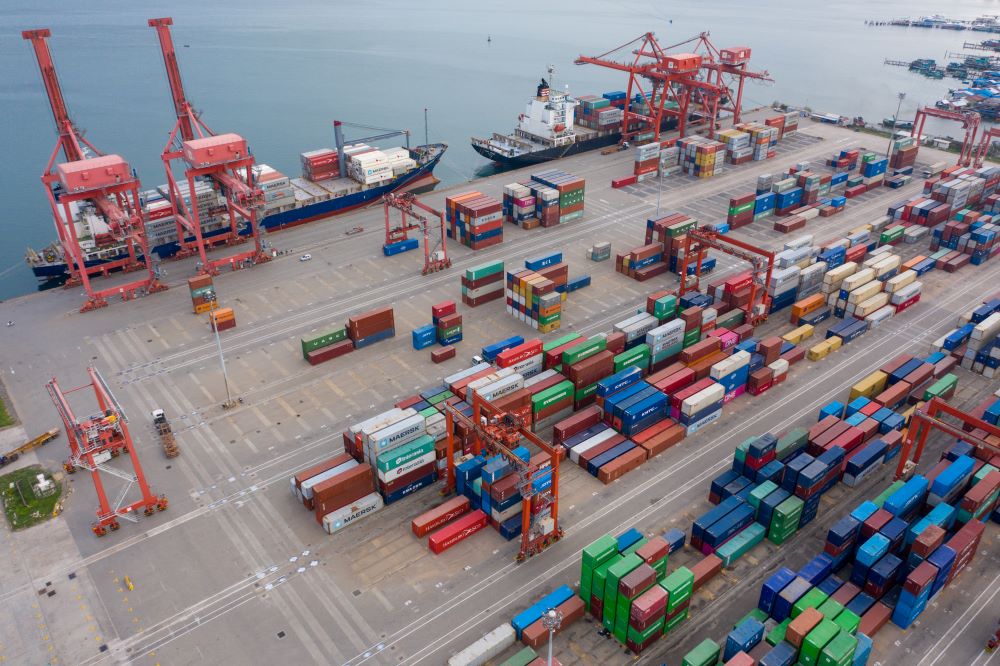
The first few days of the new border regime for goods entering Britain from the EU have proved less chaotic than predicted, with port bosses “cautiously optimistic” about the arrangements.
However, customs experts have warned that trade is generally slower at the start of the year and warned traders to stay up to date with the latest government advice relating to how to correctly use the new systems bought in on 1 January.
New rules
Since New Year’s Day import declarations have been required for EU goods at the point of entry into Great Britain.
Firms must also prove goods qualify for preferential tariff rates by meeting the rules of origin set out in by the UK-EU Trade and Cooperation Agreement, while businesses bringing in certain plant or animal-based goods must pre-notify border authorities of their imports.
Compliance
Port bosses have told the Telegraph that traders so far appear to have been successfully complying with the new rules.
Richard Ballantyne, chief executive of the British Ports Association, said: “Although it has been a fairly quiet start to the year in terms of traffic, traders appear to be following the new rules and the systems seem to be working.”
Too early to tell
James Sibley of the Federation of Small Businesses said a similar pattern occurred last year when new rules for exports to the EU appeared to come in unnoticed, before a “slow trickle of problems” started to build.
“We would expect problems to start being reported as the month goes on really, as X supplier from the EU got the paperwork wrong, or [they’re] not able to provide the right data,” he said.
IT issues
There have, however, already been some teething problems with the new Goods Vehicle Movement Service – the government’s border IT system which logs vehicles, their loads and accompanying declarations in advance of their entering the country.
The system crashed on the first day of operation, with a Loadstar source blaming a lack of time for users to familiarise themselves with GVMS.
“Importers were left with no time to get to grips with the system, and no chance to trial dummy entries,” said the source.
Another haulier told Politics Home one of his lorries had been stuck at Dunkirk port for three days due to issues with GVMS.
GVMS: imports and exports
GVMS has been established to facilitate the smooth movement of goods through GB ports and avoid delays related to checks on customs documentation.
On 1 January 2022 it was introduced for goods moving in both directions between the UK and EU.
HMRC issued a notice to traders following its introduction for exports, warning exporters that they need to check whether to submit their export declaration as ‘arrived’ before their goods start their journey.
Stay up to date
IOE&IT Academy director Kevin Shakespeare told the IOE&IT Daily Update that traders should keep an eye out for notices from HMRC regarding how to correctly use the new IT system.
"It's too early to say what the impact of new rules on EU-to-GB imports will be, but some teething issues are usually to be expected – as some hauliers are seeing with GVMS,” he said.
"However, GVMS will play an important role in facilitating the fast movement of goods between Britain and the EU under the new border regime. Traders should stay alert to HMRC notices about how to use it correctly, as well as guidance in the IOE&IT Daily Update."
Traditionally slower
Trade is traditionally slower at the start to the year, but supply pinch points are already being felt in the UK and globally.
The Grocer reports that food shortages resulting from the new import rules should not occur immediately due to stockpiling by firms at the end of last year.
While the British Frozen Food Federation said last week that there remained the “potential for massive delays and food supply issues” due to the new border regime, it has not heard of “any reports of serious disruption” yet.
CEO Richard Harrow, said: “We understand that many food businesses have built up stock in December to shield themselves from the expected problems with the new import rules.”



